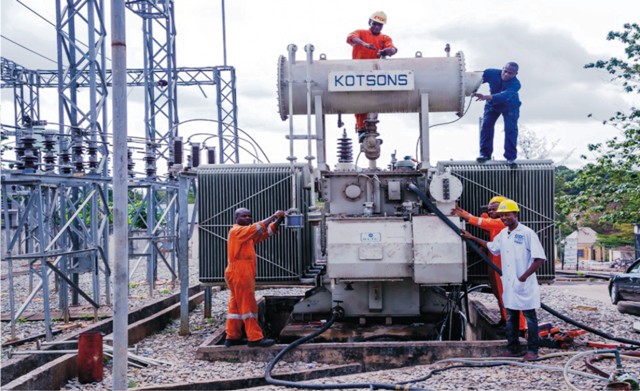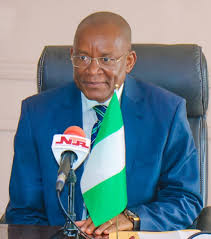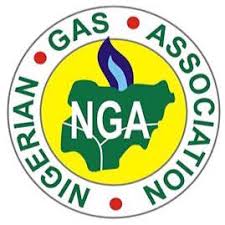Business
Electricity: Gas Shortage Stalls 10,362MW In Three Days

Gas shortage to thermal power plants stalled the generation of 10,362.5 megawatts of electricity, between April 2 and April 4, The Tide has learnt
The generation companies explained that gas shortage greatly hindered the production of electricity in thermal power plants.
Industry figures obtained by our correspondent in Abuja on Sunday showed that gas constraint stalled 3,393MW, 3,478MW and 3,491.5MW on the 2nd, 3rd and 4th of April respectively.
It was further observed that gas shortage remained the highest constraint to power generation since the beginning of April.
In the three days under review, the sector lost N7.87bn due to gas, transmission and distribution constraints.
The Association of Power Generation Companies (APGC), an umbrella body for electricity producers in Nigeria, said there had been a great hindrance to power generation from thermal plants as a result of gas shortage.
The APGC’s Executive Secretary, Joy Ogaji, said Gencos were willing to support the Federal Government, particularly during the current COVID-19 challenge, but stressed that gas shortage had been a big hindrance to the generation of electricity.
She said, “There is a shortage of gas supply for thermal generation companies. Thermal power from gas and steam turbines accounts for about 80 per cent of Nigeria’s power generation.”
According to the Gencos, gas suppliers demand upfront payment before they make gas available and the power generators cannot afford to meet this request given the liquidity issues in NESI.
“From the Gencos point of view, we are willing to invest to increase the capacity of our power plants and provide necessary investments to cater for maintenance and the repair,” Ogaji stated.
She also said, “Generation companies are willing to work with relevant stakeholders such as the Federal Ministry of Petroleum Resources and the Nigerian National Petroleum Company, two critical stakeholders with oversight over gas resources, to develop novel approaches in making gas available for generation companies.
“If answers to Gencos most pressing/pertinent questions (such as, can we be fully dispatched? Can we get gas and who is paying for the power?) can be sorted out; then, power supply issues of the nation will be a thing of the past.
“Gas and transmission (evacuation) are critical and urgent needs outside the control of the generation companies and for this, it calls for urgent government intervention.”
The power firms noted that apart from gas molecules and transmission, Gencos had other challenges which government was actively engaging to resolve.
Business
CBN Predicts 4.17% GDP Growth In 2025

The Central Bank of Nigeria (CBN) has announced that the 2025 economic indices indicate a positive outlook, with the nation’s GDP expected to accelerate to 4.17 per cent for faster economic growth.
Mr Muhammad Abdullahi, Deputy Governor, Economic Policy Directorate, CBN, revealed this on Tuesday during the 11th edition of the National Economic Outlook: Implications for Businesses in 2025.
The hybrid event, convened in Lagos, was organised by the Chartered Institute of Bankers of Nigeria (CIBN) Centre for Financial Studies in collaboration with B. Adedipe Associates Ltd.
Abdullahi said the nation’s 2025 economic projections remained optimistic with fiscal and monetary reforms already paying off, resulting in the GDP anticipated rise from 3.36 per cent recorded in 2024.
According to him, the growth is anchored on sustained implementation of government reforms, stable crude oil prices, and improvements in domestic oil production.
Abdullahi also stated that stability in the exchange rate would play a crucial role in maintaining the positive trajectory, with the inflation rate projected to decline due to the impact of economic reforms.
“Achieving the targeted inflation rate of 15 per cent in 2025 will require effective collaboration between monetary and fiscal authorities, alongside private sector participation for a stable economic environment,” he said.
The keynote speaker said that the apex bank would prioritise price stability and strengthen the financial sector to support SMEs and critical sectors for businesses to thrive.
Abdullahi noted that the nation’s evolving policy landscape presented both challenges and opportunities for businesses to thrive.
“The government is making deliberate strides to diversify its revenue streams and reduce dependence on the volatile oil sector.
“Through ongoing tax reforms aimed at broadening the tax base and improving collection efficiency, the government is working to establish a more sustainable fiscal environment.
“While these reforms may present challenges in the short term, they are essential for building a more resilient and diversified economy in the long run.
“As businesses, it is crucial to adapt to these changes, understanding that they will ultimately strengthen the economic foundation for future growth.
“As we move forward on this path of exploration and collaboration, we must remain focused on the vast opportunities before us.
“Nigeria’s abundant resources, coupled with the current administration’s commitment to economic reform, offer a fertile ground for innovation, investment, and sustainable growth,” Abdullahi said.
Similarly, Prof. Pius Olanrewaju, President/Chairman of the Council, Chartered Institute of Bankers of Nigeria (CIBN), said 2024 presented both challenges and opportunities.
He noted that the GDP signalled gradual recovery amidst global and domestic pressures.
“As we move into 2025, we are presented with both the opportunity and responsibility to critically examine the economic landscape.
“This forum will help us identify the risks, harness the opportunities, and strategize for the future,” Olarenwaju noted.
He commended the collaboration of experts at the annual event, which included Dr Kabir Katata, Director, Research, Policy and International Relations, Nigeria Deposit Insurance Corporation; and Dr Henrietta Onwuegbuzie of the Lagos Business School.
Others were Akinsola Akeredolu-Ale, CEO, Lagos Commodities and Fixtures Exchange; Mr Akeem Lawal, Managing Director Interswitch (Pure pay); and Chinwe Uzoho, Regional Managing Director, West and Central Africa Network International.
Business
Minister Inspects Nigeria/Benin Republic-owned Sugar Firm … Decries Decrepit Condition

Business
NGA Becomes Official Partner To 29th Gas Conference … As President Set To Address 2025 World Summit


